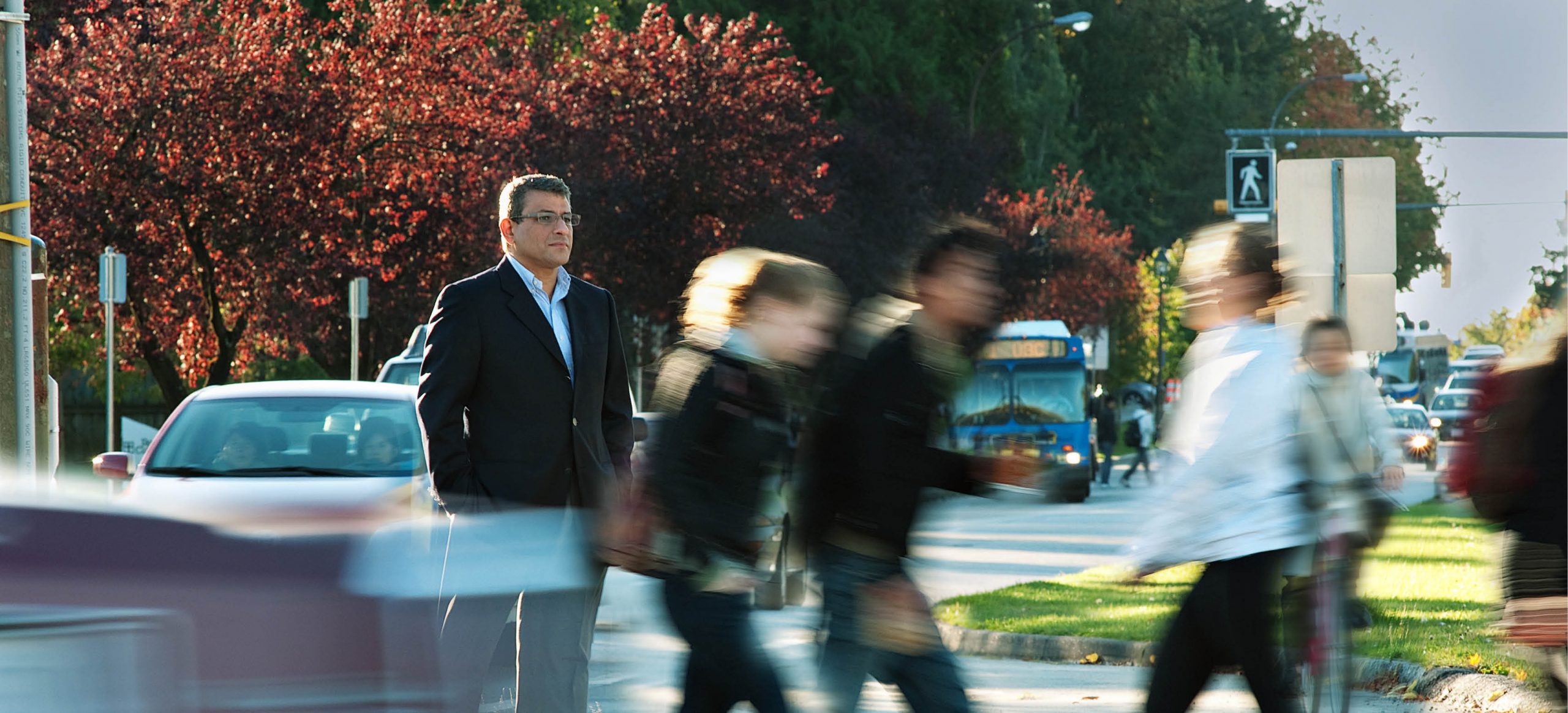On June 14, 2019, UBC Civil Engineering Professor Tarek Sayed, was announced as a new Tier 1 Canada Research Chair in Transportation Safety and Advanced Mobility. Honourable Kirsty Duncan, Minister of Science and Sport, announced an investment of over $275 million for 346 new and renewed Canada Research Chairs at 52 institutions across Canada for research excellence. The Canada Research Chair’s program is part of a national strategy to make Canada one of the world’s top five countries in research and development by attracting and retaining some of the world’s most accomplished and promising researchers.
Professor Sayed’s research applies a wide spectrum of transportation applications with a focus on safety and operation. His research is influenced by the remarkable decrease in road traffic fatalities and injuries over the last decade, especially in developed countries. Despite the considerable progress achieved, there are still serious concerns regarding road safety, where each year more than 1.25 million people die worldwide in road crashes and a further 50 million people suffer from injury. In Canada, traffic crashes result in approximately 1,900 fatalities and 165,000 injuries each year, where the annual cost of road crashes to the Canadian economy is estimated at $62.7 billion CDN. In many jurisdictions in British Columbia, insurance premiums are spiraling higher as auto insurance companies face considerable losses. Therefore, the importance of research into reducing the social and economic costs of crashes cannot be overstated.
Most current research on road safety focuses on statistical techniques to model crashes and evaluate safety countermeasures. Less attention has been devoted to improving our understanding of crash causes and road user behaviour. This is unfortunate, given the lack of understanding of the complex interaction of crash factors, how safety measures work, and how they affect road user behaviour. Statistical analysis is an integral and important part of safety research; however, a better understanding of the problem is required before attempting to apply statistics.
With the introduction of new modes of mobility and the complex interactions created by these different technologies, governments will rely on advanced research and analysis techniques to support policies towards the transition to these new forms of mobility. While these technologies are intended to increase safety, the period of transition may result in more conflicts and collisions. Therefore, the incorporation of technologies such as artificial intelligence, and connected and autonomous vehicles, will require strategic insight through a collective and collaborative approach to appropriately advise decision makers and limit the potential for unintended consequences.
Dr. Tarek Sayed is a Professor and Distinguished Scholar at the Department of Civil Engineering at UBC. He is a Fellow of the Engineering Institute of Canada, the Canadian Academy of Engineering, and the Canadian Society for Civil Engineering. His research has addressed a wide spectrum of transportation system applications with a focus on traffic operation and safety, and Intelligent Transportation Systems. He is the author of more than 350 journal and conference papers. As well, he has completed numerous consulting projects in North America and internationally.
